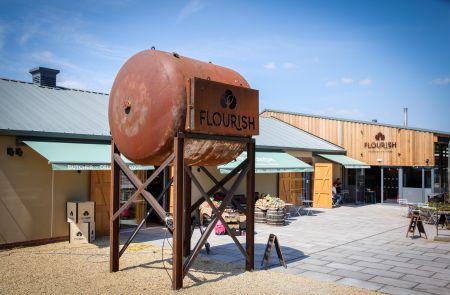In case you missed it see what’s in this section
Let's Talk
Turning restaurant waste into a resource
Running a restaurant involves more than preparing great food. Behind the scenes, kitchens generate by-products that need careful management—not only to stay compliant but also to protect the environment. One of the most significant of these by-products is used cooking oil. Rather than being seen as a costly waste problem, it can become a valuable resource when managed correctly.
The problem with improper disposal
Pouring oil down the drain or disposing of it with general waste can have serious consequences. It clogs pipes, damages sewage systems, and poses environmental risks when it enters waterways. For restaurants, the costs of dealing with these issues—both financial and reputational—can be high. That is why professional cooking oil collection is not only a regulatory requirement but also a smart business decision.
From waste to biodiesel
When collected properly, used oil is far from useless. It can be refined and transformed into biodiesel and sustainable aviation fuel (SAF), a renewable energy source that reduces greenhouse gas emissions by up to 80% across their lifecycle. This process turns what was once a kitchen challenge into a driver of sustainability. For restaurants, contributing to this circular economy is an opportunity to play a direct role in reducing carbon emissions while running daily operations smoothly.
The role of trusted collection partners
Working with specialists like Quatra ensures that oil is collected efficiently, safely, and in full compliance with UK regulations. Quatra provides restaurants with containers, regular pick-ups, and the guarantee that every litre collected is recycled responsibly . At the same time, Quatra can deliver fresh cooking oil in that very same trip, combining two essential services into one seamless solution. Beyond simplifying logistics, this professional support allows restaurant owners and managers to focus on what they do best, delighting their customers.
Benefits beyond compliance
Turning waste into a resource has advantages that extend well beyond meeting legal obligations. Restaurants that adopt sustainable practices build stronger reputations with eco-conscious customers, who increasingly prefer to support businesses that prioritise environmental responsibility. Demonstrating a commitment to recycling also strengthens relationships with local communities and contributes to a greener city overall.
Building a sustainable future for hospitality
Sustainability in the restaurant industry is not about grand gestures but about consistent, thoughtful practices. By partnering with experts in oil collection, businesses can turn everyday waste into renewable energy, proving that small changes in the kitchen can make a big impact outside of it. Restaurants that embrace this approach are not only protecting their operations today but also helping to shape a more responsible and resilient food industry for tomorrow.
Weather in Bristol
Listings

















